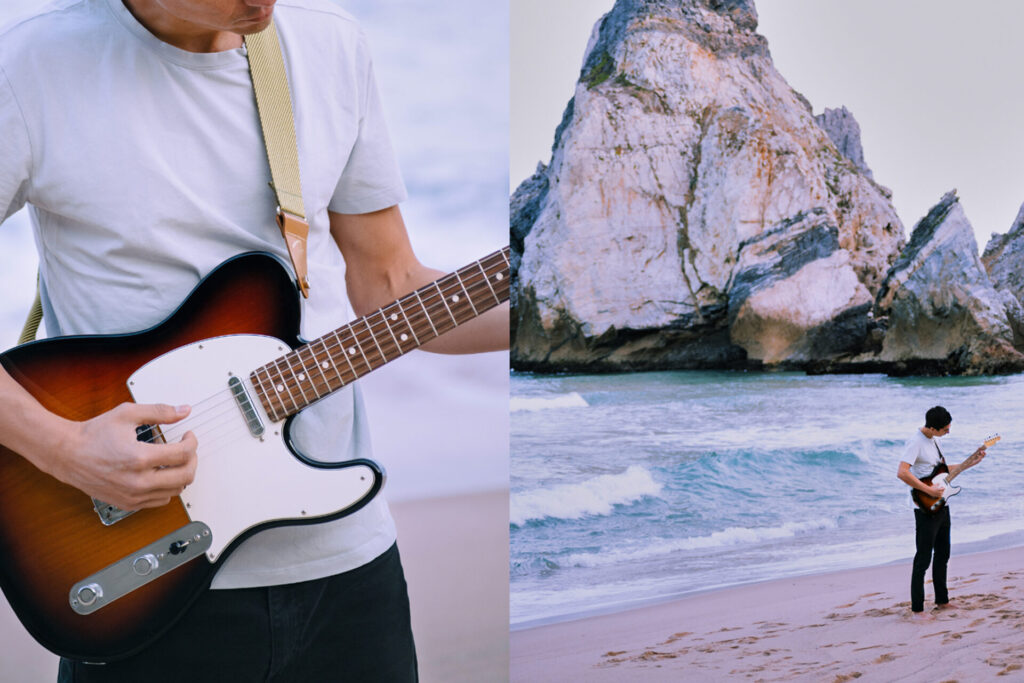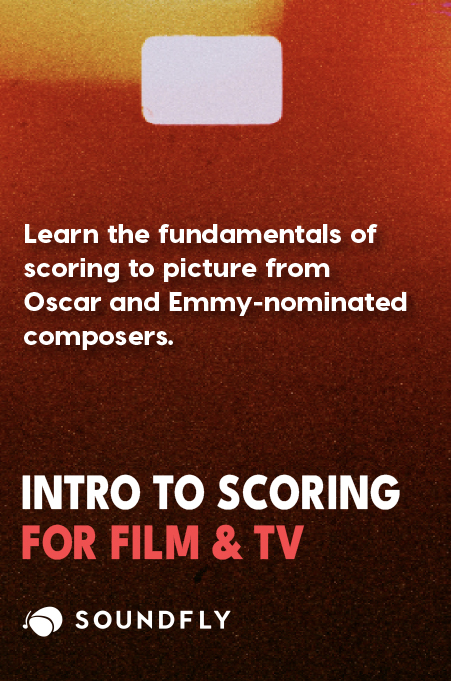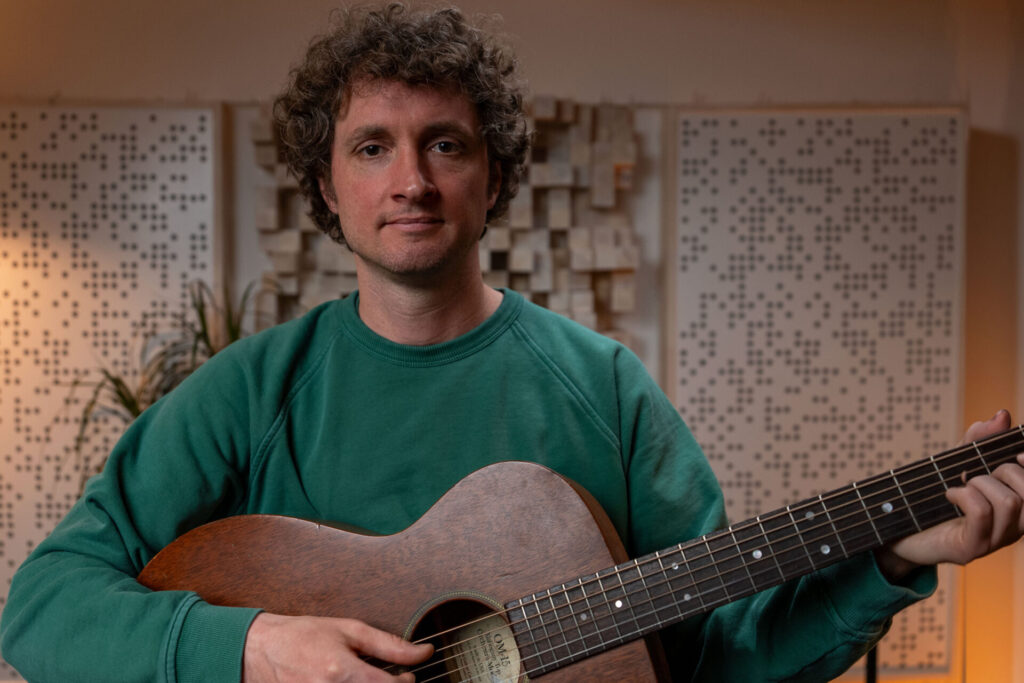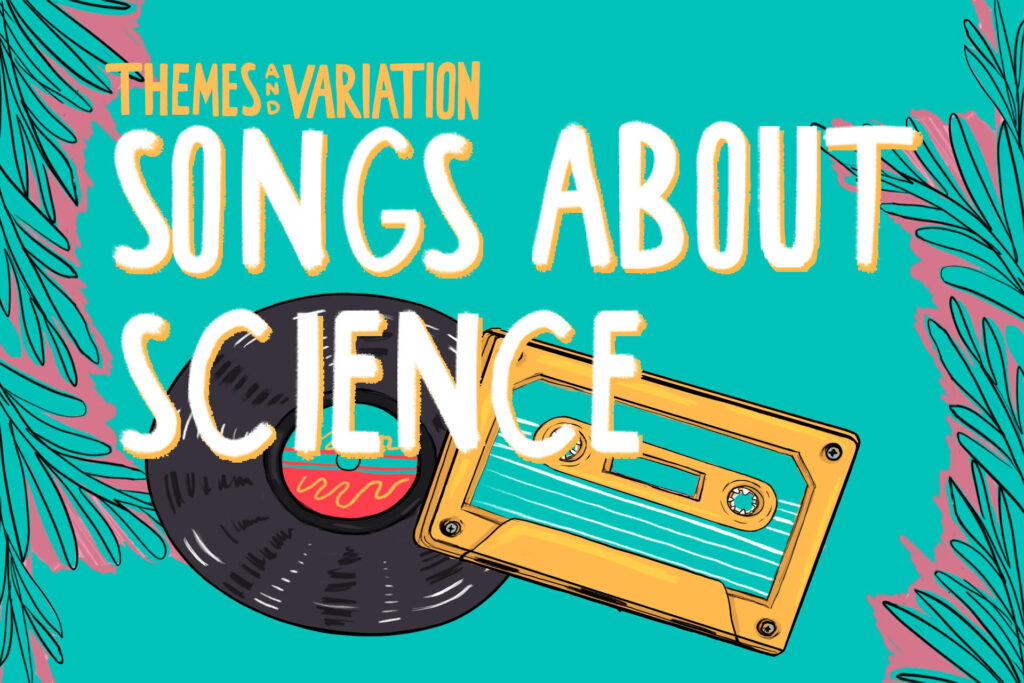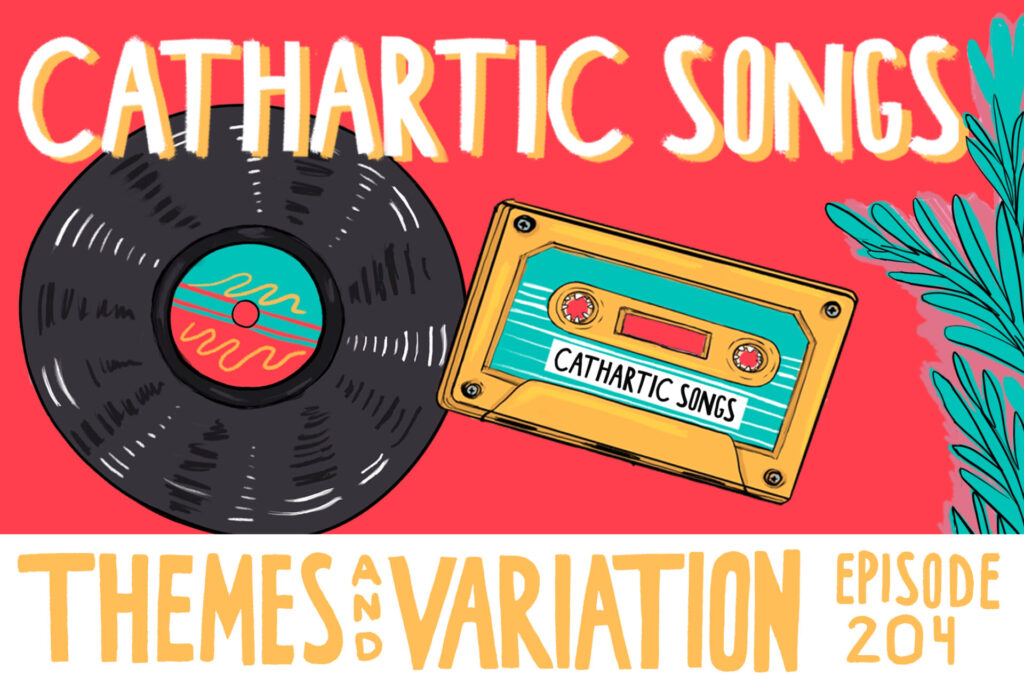Juan Manuel Vasquez is a guitarist and electronic music producer from Colombia, who now lives in Denmark, and who records under the moniker Misticeti. His music flows like Bonobo, Tycho, and Boards of Canada, and that’s no accident.
In fact, as far as references go, I’ve almost never heard music that so closely traces the lines of the heavy hitters who inspired it. Yet Juan’s talent goes even further, as he takes great pride in incorporating Latin American infusions and elements from his Colombian heritage into his music.
But Juan didn’t come to Soundfly to learn any of this stuff; all of which he discovered on his own through prolonged work and engagement. He came to Soundfly to learn more about branding and identity-driven content marketing, and in working one-on-one with a mentor he found just that.
Please enjoy my recent conversation with Juan Manuel Vasquez (a.k.a. Misticeti) about his musical project and the experience he’s had working with a Soundfly Mentor to develop his skills. Enjoy!
Q: You recently released your latest single, “Mirage,” as Misticeti. It’s a lush, beautiful track with natural soundscapes and impeccable sound design. Congrats! How did this track come together and what were your initial motivations?
A: First of all, thank you for having me here on Flypaper. Misticeti is a project that’s been on my mind for a while, but only until recently have I really focused on it. My personal background is pretty diverse, as I have always been interested in many fields outside of music. I studied journalism in university and later created a video production studio in Colombia, making commercials, documentaries, and short-form video content.
But music has always been a big part of my life, too. When I was a teenager, I taught myself music production by making funny trance tunes on Fruity Loops. They were cheesy, but it was a lot of fun. As I got more into producing videos, I learned to score ads and short films, and I gradually improved my skills over time. I also started to add more Latin American sounds into my work, especially in terms of groove and percussion. That’s how I started to create my own music outside of client work.
Last year, I moved to Denmark, which gave me the opportunity to invest more time into music production and developing the Misticeti project. Although the project has its roots in Latin America, it really came to life here in Scandinavia.
“When I’m creating music, I don’t have any strict rules”
What is your songwriting/producing process like exactly? What elements do you start with and how do you build your tracks?
When I’m creating music, I don’t have any strict rules. It’s more of an open process, though it usually starts with synth melodies that catch my ear. If I hear an interesting synth sound or texture, I feel drawn to exploration. Then I’ll build a drum kit and percussion around some melodic idea and start to craft a vibe around that. I really love the synths you hear from artists like Boards of Canada — rich, analogue, and worn down.
So my personal take on music is to add a Latin American groove and flow to those types of synth sounds, trying to find a balance between danceable and introspective.
After I finish a first version of a track, I usually go through a process of editing and revising. Most of the time, the final version ends up being completely different from the initial one. I feel this is an important process to craft a better song, but I have to be careful not to overdo it. Obsessing over perfection (whatever that means) can quickly lead to procrastination.
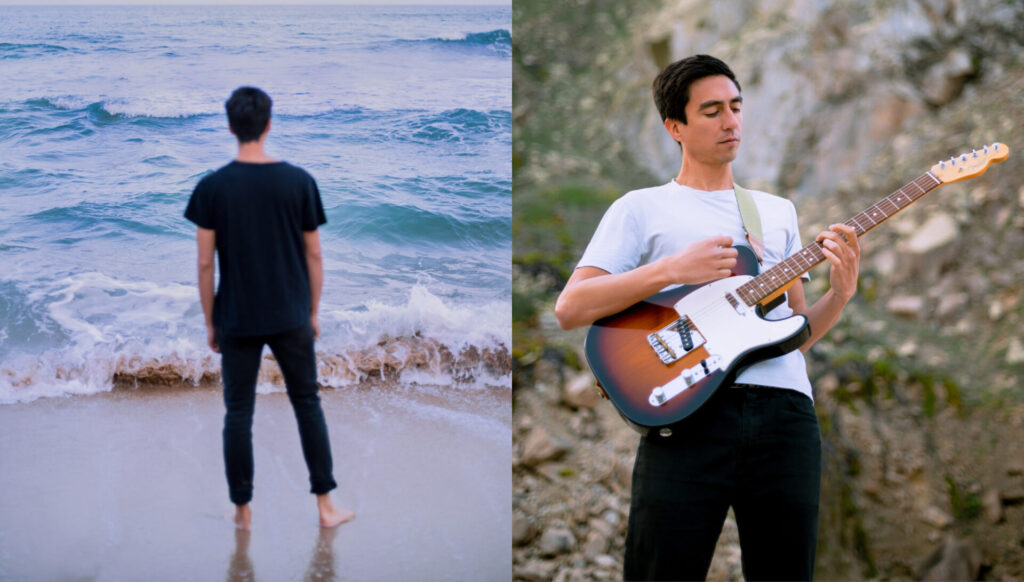
I hear natural field recordings, percussion, and guitar in here, as well as tons of in-the-box electronics. How do you balance the familiar and stable sounds in your palette with branching out into new sounds?
The sonics you mention took me some time to develop, and that’s actually why I didn’t feel comfortable releasing my own music until now. I didn’t want to limit myself to strict genre conventions, but instead, take a more experimental approach that felt like my own.
The surf rock tone of the electric guitar is a key element in my sonic palette, along with groovy analogue-sounding baselines that I program using VSTs like Diva and Omnisphere on Ableton Live. Although I draw inspiration from the raw sounds of German techno, I aim to infuse them with a particular latin american groove. I also tend to use a lot of natural-sounding percussion, influenced by genres like cumbia, Afro-Colombian folk music and organic house. As a documentary filmmaker, I have done many field recordings in remote areas of Colombia, which I also use in some cases to add some rawness and natural texture.
Also, I try to avoid overcrowding the production, even though my tracks may be quite layered with reverb and delay. It’s like developing a mindset of doing less, but better.
How did you arrive at this sound?
I’ve always wanted to create my own electronic music, but at first, I wasn’t quite sure what direction to take. I wanted to create a sound that reflected my personal story in an authentic way. It wasn’t until I began incorporating elements of my Latin American heritage that it started to take a shape and style of its own.
My sound is heavily influenced by my background in filmmaking, particularly my time spent shooting short films in remote regions of Colombia. These regions have lots of incredible folk tales, rituals and mysticism ingrained in their culture, particularly the pacific coast of Colombia. So I try to create a sense of psychedelic voyage to capture that ancestral vibe in my music while also keeping things groovy and not overly serious. Again, it’s like a balance between fun but deep.
Also, drawing from my experience in scoring music for film and video, I arrange songs with the purpose of telling a story that hopefully keeps the listener engaged. I believe this gives a cinematic quality to my sound.
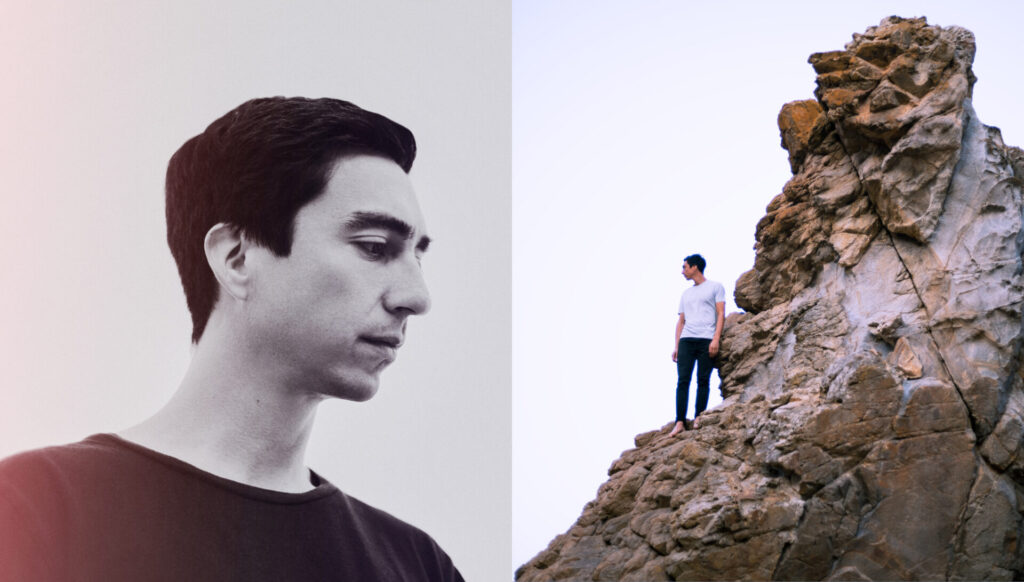
You mention Bonobo, Four Tet, and Boards of Canada among others as artists that have inspired you — what do you think you’ve sought to borrow from your idols in your process or sound?
I’ve been influenced by many artists and genres in my music. I’ve taken elements from Boards of Canada’s analog synths, which for me create a very unique sound that is very nostalgic and emotional but can get quite dark at times as well. From Radiohead, it’s their overall artistic approach and style that I love – although my sound is quite different from theirs. Bonobo and Four Tet both have a particular blend of groove and emotion that personally resonates with me. In Four Tet’s case, I really love his quirky percussion.
There are many other artists from diverse genres that I look up to. I listen to old soul, ambient, melodic techno, alternative rock, cumbia, chill hop and world music. But my main passion is definitely electronic music. So I would say that I try to combine these influences to create a bridge between the electronic sounds I love and my culturally rich Colombian heritage.
You recently finished a coaching session with Soundfly Mentor Joseph Capalbo that focused on branding and marketing for the new music coming out. How was that experience and what did you aim to accomplish in the session?
I had a great experience working with Joseph! He was not only highly professional but super helpful, guiding me throughout the initial stages of my content strategy. Although I know I need to keep improving my production skills, our sessions mainly focused on marketing and branding because thats my most pressing need. With my upcoming release, my priority is to build a fan base on social media.
Joseph’s guidance helped me overcome my initial resistance. We achieved key milestones, and I started posting and now I embrace social media and marketing as part of my everyday life. The reality is that if you don’t embrace social media as an artist, or as someone who wants to promote a brand, build an audience or grow a business, you won’t stand a chance.
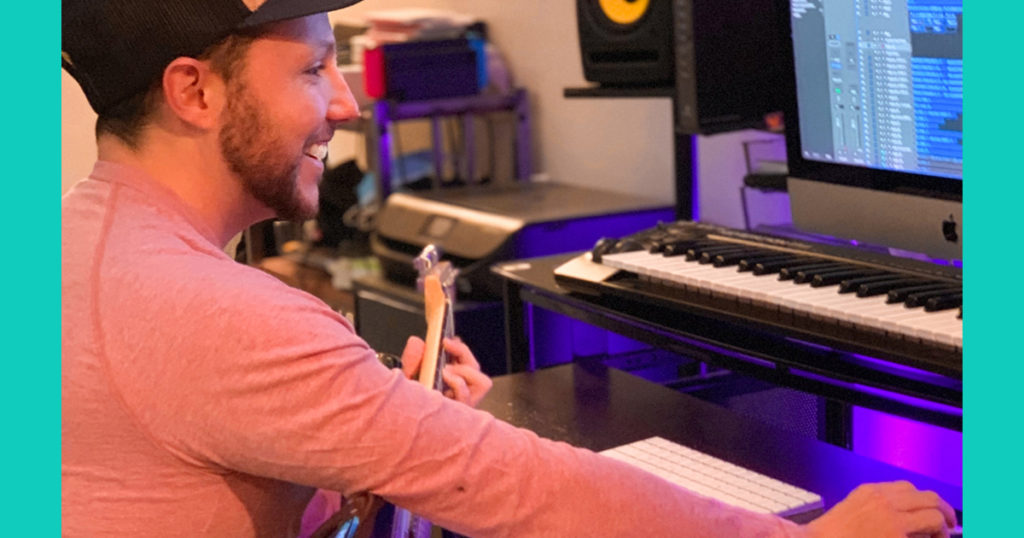
Have you been able to put any concepts you’ve learned with Joseph into action?
Absolutely! Each session was super productive. We bounced around ideas for content and discussed effective strategies to build a connection with my audience. He kept me accountable and on track with my goals, while also providing ongoing support and guidance.
What brought you to Soundfly originally?
I was looking for resources on how to brand myself as a musician, and stumbled upon an article by Ian Temple, founder of Soundfly, on the Awal website. I followed the steps in the article and it was super helpful. I figured that if Ian’s article was helpful for my branding, then it would be worth checking out Soundfly’s website as well. That’s when I discovered their mentoring service and knew that it was something worth investing in if I really wanted to present the Misticeti project in a more polished way.
“I’m embracing everything as an experiment to see where it leads.”
What’s next for you in 2023?
I have two EPs set to release in 2023 with the label LOCI, so I’m currently focused on creating work and collaborating with artists. I believe my music has a lot of room for improvement, and I plan to collaborate more with vocalists in this new phase. I’m also working on developing a live set, and my goal is to start playing live in Denmark by the end of the year. This is a new experience for me, so I’m embracing everything as an experiment to see where it leads.
Overall, I feel incredibly grateful for these first steps in my musical journey. It seemed like a distant dream before, but I’m taking action to make it happen.
Improve your music with creativity & curiosity on Soundfly.
Subscribe to our YouTube channel for weekly videos, or join Soundfly’s all-access membership to all of our artist-led online music courses, an invite to join our Discord community forum, exclusive discount perks from partner brands, access to artist Q&As and workshops, and more.
